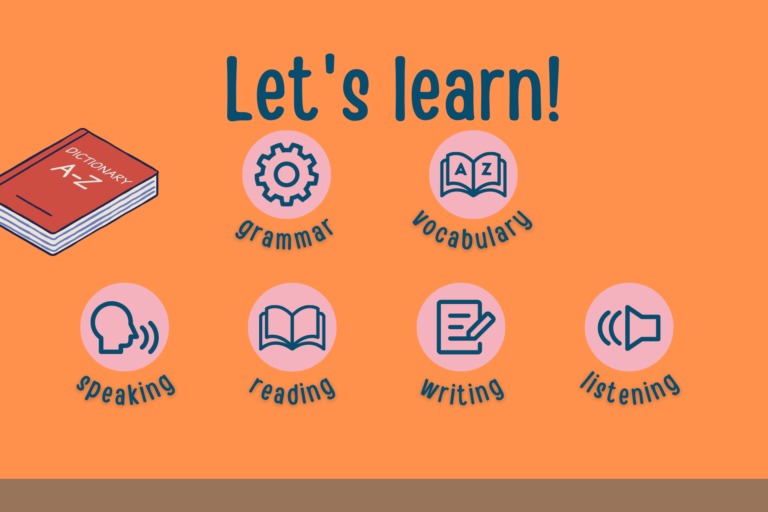When learning a language, sounding natural is as important as knowing grammar rules. If you want to improve your everyday English, you need to use expressions that native speakers commonly say. These phrases make conversations smoother, help you sound more fluent, and reduce misunderstandings.
In this article, we’ll cover 20 essential expressions for both business and general English, with examples to help you use them correctly.
1. On the Same Page
Meaning: To have the same understanding or agreement on something.
Example:
Before we present the project, let’s make sure we’re on the same page about the budget.
2. Cut to the Chase
Meaning: To skip unnecessary details and get to the main point.
Example:
I don’t have much time, so let’s cut to the chase—are you accepting the deal or not?
3. Call It a Day
Meaning: To stop working on something for the rest of the day.
Example:
We’ve finished the most important tasks, so let’s call it a day and continue tomorrow.
4. A Piece of Cake
Meaning: Something very easy to do.
Example:
That test was a piece of cake! I finished it in 10 minutes.
5. Break the Ice
Meaning: To start a conversation in a way that makes people feel comfortable.
Example:
She told a funny story to break the ice at the meeting.
6. Back to Square One
Meaning: To start over because the previous attempt failed.
Example:
Our marketing plan didn’t work, so we’re back to square one.
7. The Ball Is in Your Court
Meaning: It’s now your responsibility to take action.
Example:
I’ve sent you all the details. The ball is in your court now.
8. Keep an Eye On
Meaning: To watch something or someone carefully.
Example:
Can you keep an eye on my laptop while I grab a coffee?
9. Get the Hang Of
Meaning: To learn how to do something through practice.
Example:
It took me a few weeks to get the hang of the new software.
10. A Blessing in Disguise
Meaning: Something that seems bad at first but turns out to be good.
Example:
Losing my job was a blessing in disguise because I found a better one.
11. Hit the Nail on the Head
Meaning: To describe something exactly or to be completely correct.
Example:
You hit the nail on the head when you said the problem was poor communication.
12. Go the Extra Mile
Meaning: To do more than what is expected.
Example:
She always goes the extra mile to help her clients.
13. In the Same Boat
Meaning: To be in a similar situation as someone else.
Example:
We’re all in the same boat when it comes to adapting to new technology.
14. Keep Your Cool
Meaning: To stay calm under pressure.
Example:
Even during stressful meetings, he always keeps his cool.
15. Through Thick and Thin
Meaning: To stay with someone or something in good times and bad times.
Example:
True friends stick together through thick and thin.
16. Under the Weather
Meaning: To feel sick or unwell.
Example:
I’m feeling a bit under the weather today, so I’ll rest at home.
17. Think Outside the Box
Meaning: To be creative and find new solutions.
Example:
We need to think outside the box to solve this issue.
18. No Pain, No Gain
Meaning: Hard work is necessary for success.
Example:
He trains every day for the marathon—no pain, no gain.
19. Rule of Thumb
Meaning: A general guideline or principle.
Example:
A good rule of thumb is to always double-check important emails before sending them.
20. Pull Someone’s Leg
Meaning: To joke or tease someone.
Example:
I thought he was serious, but he was just pulling my leg!
Why Learning These Expressions Matters
If you want to sound more fluent in everyday English, using these expressions will help. They make your speech more natural, allowing you to communicate confidently in work and casual situations.
Many learners focus only on vocabulary and grammar, but native speakers use idioms and phrases regularly. Without them, conversations may feel too formal or unnatural.
Tips for Using These Expressions in Everyday English
- Practice in Conversations
Try using one or two of these expressions each day in real conversations. - Listen to Native Speakers
Watch movies, listen to podcasts, or follow business discussions to hear these phrases in action. - Write Them Down
Keep a notebook of expressions and review them regularly. - Use Flashcards
Create flashcards with the expressions and their meanings to test yourself. - Think in English
Instead of translating, train your mind to think in everyday English using these phrases naturally.
Final Thoughts
Improving your everyday English takes time, but learning common expressions will make a big difference. These 20 phrases help you understand and connect with others in both casual and professional settings.
Start using them today, and you’ll notice how much smoother your conversations become!
Click the link below and discover useful tips for your career success.
https://fluent-eng.com/from-experience-to-success-career-development/

